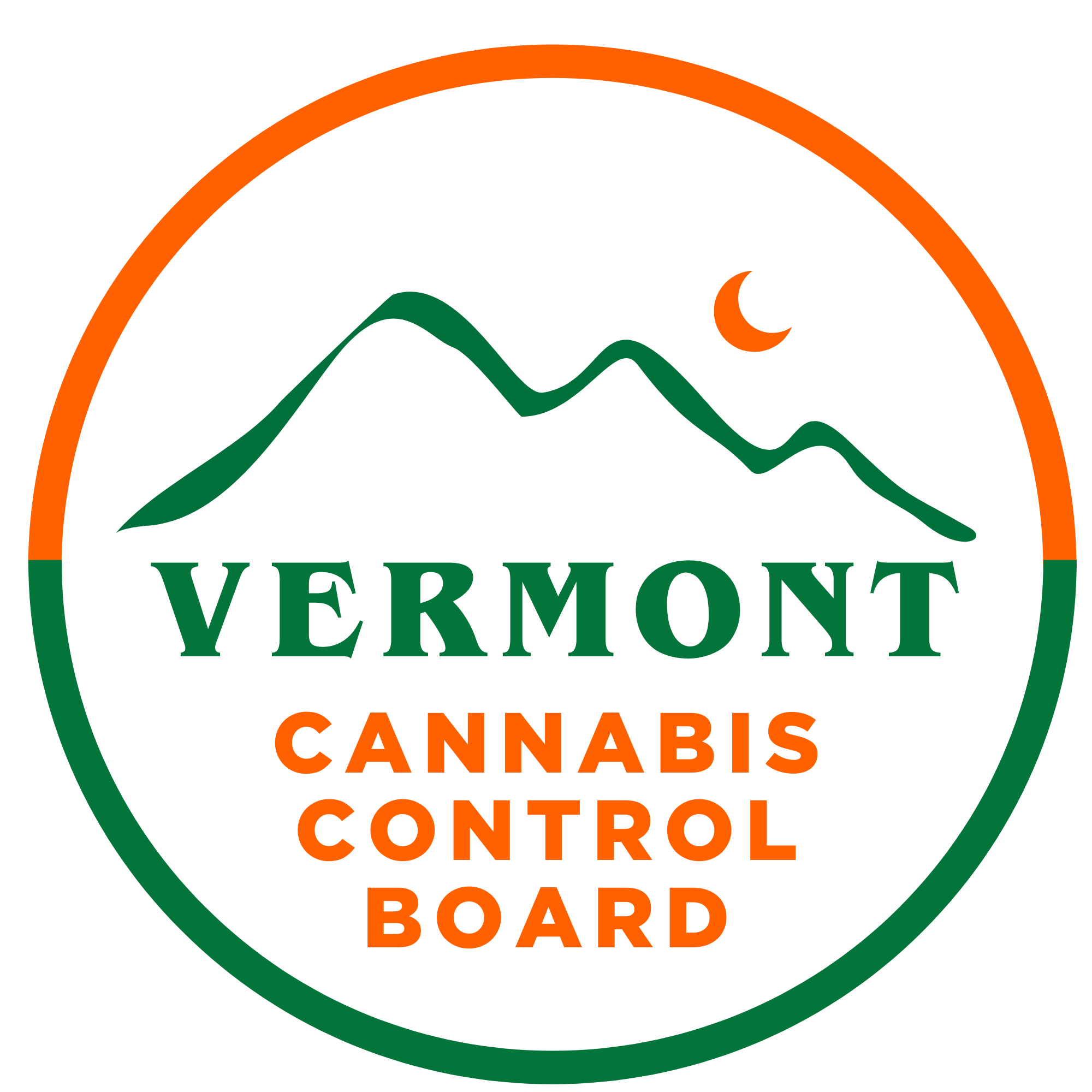These are some of the most commonly asked questions. Don't see what you're looking for? Contact us for more information.
General FAQs
How and where do I purchase cannabis?
Cannabis and cannabis products may be purchased by adults 21 and older with a valid government-issued photo ID card, which the customer must present upon entry to the retail establishment, and again prior to purchase.
Cannabis may only legally be purchased from a licensed retail establishment or the retail arm of an integrated licensee. No other license types may sell to the public. A list of licensed cannabis establishments, including retail stores, is available on our website:
https://ccb.vermont.gov/licenses
What does the Board do?
The Board is responsible for implementing and regulating a safe legal market for adult use of cannabis. More information on the CCB may be found on the About Us section of the website:
https://ccb.vermont.gov/aboutccb
What are the rules, and where do we find them? How do we provide comments?
Rules can be found here:
https://ccb.vermont.gov/laws-rules-and-regulations
Comments can be provided through the Board’s public input form, or during the public comment period of any one of the Board's public meetings.
Are there purchase limits on cannabis products? What’s the limit on flower and equivalent products?
Yes. 7 VSA § 907(b) states that “In a single transaction, a retailer may provide one ounce of cannabis or the equivalent in cannabis products, or a combination thereof, to a person 21 years of age or older upon verification of a valid government-issued photograph identification card.” Equivalent cannabis products are calculated as follows in the below chart:
Purchase Limit Equivalencies to 1oz cannabis flower
The basic conversion of ounces to grams is as follows:
- 1oz equals 28.34g
- 1g equals 1000mg
| Flower | Concentrate | Vape Cartridges | Edibles (at 50mg) |
|---|---|---|---|
| 28g product | 14g product |
8 cartridges at 1g THC per cartridge - OR - 16 cartridges at 0.5g THC per cartridge |
168 packages at 50mg THC per package |
|
8400mg THC per purchase (30% THC potency cap on flower) |
8400mg THC per purchase (60% THC potency cap on concentrates) | 8000mg THC per purchase (100% THC - no potency cap) | 8400mg THC per purchase (100% THC - no potency cap) |
Does the Board maintain a list of cannabis lawyers in Vermont?
The Board does not maintain a list of lawyers with expertise in the cannabis industry. Please consider reaching out to the Vermont Bar Association for recommendations:
Can employees with Commercial Driver’s Licenses (CDLs) use cannabis now that it is legal in Vermont?
The requirements for getting and keeping a Commercial Driver’s License are not impacted by the legalization of cannabis in Vermont. Any substance that was prohibited for use by CDL holders prior to cannabis legalization in Vermont is still prohibited.
Are firearms allowed in retail cannabis establishments?
Cannabis retailers may set their own rules with respect to allowing or forbidding firearms on their premises. Property owners have the authority to issue a no trespass order against those who do not follow the rules of their establishment.
Does the Cannabis Control Board track or report data regarding cannabis sales?
It is not the CCB's practice to collect sales data from retail cannabis establishments. Neither the CCB's rules nor the statute governing the Board require collection or reporting of sales data. However, through our inventory tracking system, we will be tracking data related to the movement of product. We will begin publishing aggregated data on cannabis and cannabis product sales through our data analytics vendor once the inventory tracking build out is complete.
The VT Department of Taxes requires reporting on sales of cannabis and cannabis products annually with the cannabis establishment's filing of their sales tax return. When filing a sales tax return, cannabis establishments will be required to report cannabis and cannabis product sales separately from other taxable items (like merchandise) due to the earmark on revenues for purposes of education and substance misuse prevention. See the VT Department of Taxes guidance for more information here:
https://tax.vermont.gov/sites/tax/files/documents/GB-1313.pdf

